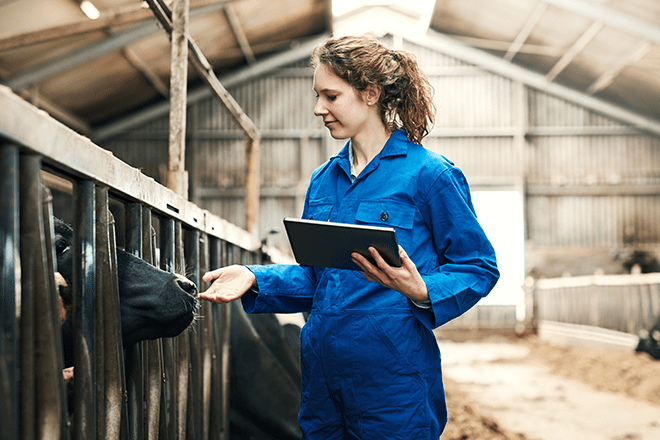It’s not just residence: Sourcing the gain in a partnership interest sale

State income taxes are complicated, especially when it comes to figuring out which state gets to tax an individual’s gain on the sale of an interest in a partnership that they own. The reason for this is that, while nearly all states impose a personal income tax on the worldwide income of their residents, they can also tax nonresidents on income sourced to the state.
Many people believe that the gain from the sale of a partnership interest can only be sourced to their state of residence. This belief is often well founded because many states treat partnership interests as intangible property, and then apply the general rule that income from the sale of intangible property is sourced to the owner’s state of residence, under what’s known as the “mobilia” doctrine, unless the intangible property has established a business situs elsewhere.
However, this belief does not hold true in all states. Some states use a sourcing method that effectively sources the gain on the sale by an individual of a partnership interest based on the percentage of the partnership’s in-state operations, an approach that is commonly referred to as “look-through sourcing.”
For these reasons, individuals who sell partnership interests need to closely watch the sourcing rules in the states where their partnership operates or they may end up with a surprise tax bill.
Here’s a look into the two major sourcing approaches used by the states: residence-based sourcing and look-through sourcing.
Residence-based sourcing
California is a very influential state when it comes to tax law, providing much guidance about the sourcing of partnership interest gains over the years, including a recent twist.
In general, California treats partnership interests as intangible property and sources the gain from the sale to the individual partner’s state of domicile. Unlike some states, California courts have rejected the argument that partnership interests have a business situs in California if they operate there, which would make the gain from the interest in such a partnership sourced to California for a nonresident individual seller.
For example, in California’s seminal case of the Appeals of Amyas and Evelyn P. Ames, 87-SBE-042 (June 17, 1987), the taxpayers were California nonresident individuals who sold an interest in a partnership that owned real estate in California. The California Board of Equalization (BOE) determined that since the transaction at hand was the sale of an ownership interest in a partnership, California had no right to tax the gains because the gains were from intangible property and were therefore sourced to the owners’ state of domicile.
The BOE also rejected the state’s theory that the partnership interest had established a business situs in the state by virtue of operating there and, in turn, it rejected the state’s attempt to source an apportioned share of the gain to California.
Because of this generally conservative approach, however, California surprised many taxpayers in July 2022 when it issued Franchise Tax Board (FTB) Legal Ruling 2022-02, which announced a look-through sourcing method for a portion of the gain on the sale of a partnership interest attributable to unrealized receivables or inventory, otherwise known as “hot assets.”
In Legal Ruling 2022-02, California explained that it treats the sale of a partnership interest by an individual as being two distinct transactions:
- The sale of a partnership interest by the partner
- The sale of Section 751 (inventory and unrealized receivables) property by the partnership immediately before disposition of the partner’s interest, creating a deemed distribution to the partner
Even though Legal Ruling 2022-02 acknowledges that the gain on the sale of the partnership interest itself is generally sourced to the seller’s state of residence, it provides that gain or loss from the partnership’s Section 751 property is sourced by multiplying it times the partnership’s California apportionment percentage from the sale year.
Look-through sourcing
In contrast to California’s approach, which almost always sources gain on the sale of a partnership interest to the seller’s state of residence/domicile, some other states always use a look-through sourcing method. Minnesota, for example, always uses a look-through sourcing method, but the exact approach depends on the kinds of assets that the partnership owns:
- If 50% or more of the value of the partnership’s assets are tangible (e.g., land, buildings, equipment), then the gain upon an individual’s sale of the partnership interest is allocable to Minnesota in the ratio of the original cost of partnership tangible property in the state to the original cost of partnership tangible property everywhere, determined at the time of the sale.
- By contrast, if more than 50% of the value of the partnership’s assets are intangible, then the gain upon an individual’s sale of the partnership interest is sourced to Minnesota by multiplying it times the partnership’s Minnesota sales apportionment factor, as measured for the partnership’s full tax period immediately preceding the tax period of the partnership during which its interest was sold.
Other states, such as Hawaii and Maine, use an approach that is similar to Minnesota’s.
Arizona also uses a look-through sourcing method, but for different reasons than Minnesota. Unlike California, which in the Appeals of Amyas and Ames rejected the idea that partnership interests have a business situs in states where they operate, Arizona specifically adopts this approach.
As a result, for Arizona personal income tax purposes, nonresident individuals must source their gain on the sale of a partnership interest by multiplying it times the partnership’s Arizona apportionment percentage for the year of the sale.
How Wipfli can help
When dealing with the sale of a partnership interest, it is crucial to know which state or states the partnership operates in and to understand the sourcing method those states use for sourcing the resulting gain. If you’re unsure about what those rules are, contact a Wipfli advisor to discuss your concerns. Our team has deep experience helping clients navigate complex state tax issues related to these matters.
Sign up to receive more tax-related content in your inbox or continue reading on:




